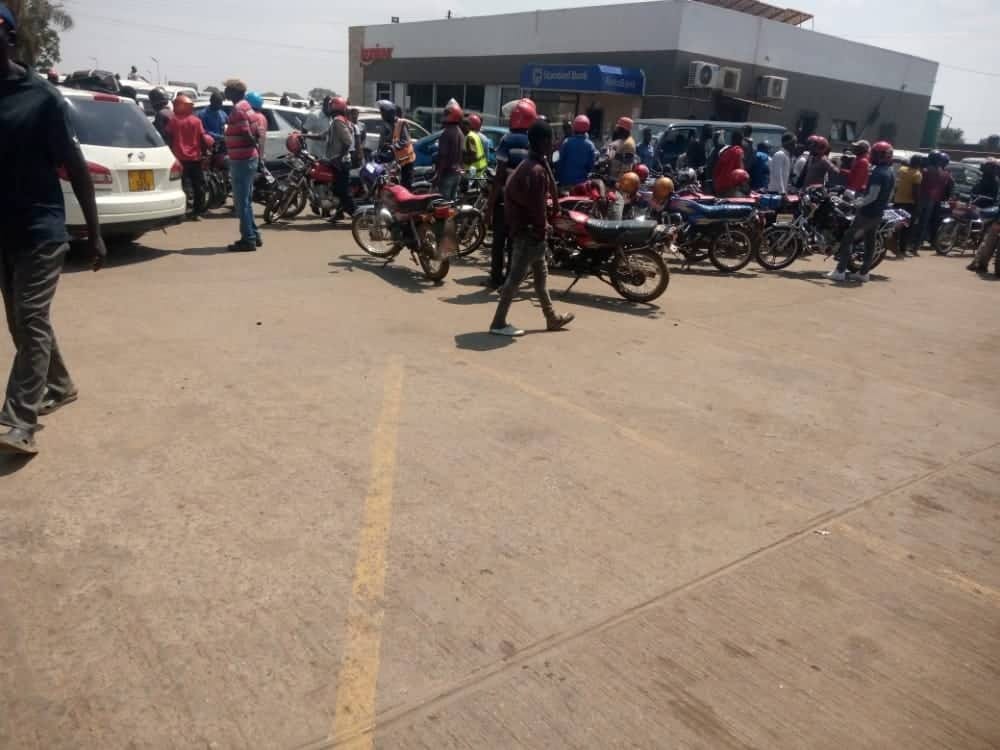No end in sight: fuel crisis worsens
The situation has worsened as the black market is unattainable, selling at three times the normal price, causing bus fares to rise.
Malawi: Driving a petrol car in Malawi remains an unaffordable luxury as the country's fuel crisis worsens.
Motorists, including family cars, taxi commuters, buses, and motorcycles, have since stopped running their routes, preferring to spend the night in filling stations in search of gasoline.
The situation has worsened as the black market is unattainable, selling at three times the normal price, causing bus fares to rise.
Many people are being forced to walk long distances to and from their destinations as a result of the situation.
Emanuel Daka, a minibus driver in Lilongwe, believes this year's strike is the culmination of a long-running fuel crisis that nearly brought the country to a halt and sent it spiralling down the economic cliff Malawians faced in 2011.
He's been at Total Walkers at Biwi in Lilongwe since Sunday, braving the blistering heat of the second week of November. He was one of the sleek cars that formed a snaky queue on the M1 road, causing a contraflow of vehicles from and to town.
Since the alleged foreign currency shortages, this has been the case in many parts of the country, most notably in the country's cities.
Since then, opposition political parties and civil rights activists have blamed the Chakwera administration for the broader economic downturn.
During a press conference on Saturday, Malawians may have expected Minister of Energy Ibrahim Matola, his MERA chief executive officer Henry Kacheje, and Minister of Information Gospel Kazako to discuss the government's efforts to resolve the currency crisis. It never happened other than to make a political statement about how concerned the government is about the situation.
Kachaje Malawians that the problem goes beyond his office because the difficulties in importing petroleum are due to currency, which his office is not mandated to make or look into.
He asked Malawians to put their cars on a fuel diet and only consider long-distance trips.
"I cannot guarantee when the problem will be resolved. Our strategy for ensuring we have enough fuel has remained consistent, but the challenge has been forex. We raised a green flag to show that we needed to add to the reserve, but it never happened, so we raised a red flag, and now the reserve is almost extinct,” he stated.
Consumers Association of Malawi (CAMA) Executive Director John Kapito agrees with Kachaje that he cannot be held solely responsible for the fuel shortage, which is the result of Tonse Alliance's poor governance.
According to Kapito, the reappearance of nationwide fuel queues from last year, particularly in the months of September to December following a year of rule in 2021, requires Chakwera to move beyond mere rhetoric in podiums about what his government is doing in both the short and long term.
The highly importing, donor-dependent economy was found to be in forex distress in 2021 after the International Monetary Fund (IMF) dangled its aid carrot through the Extended Credit Facility in protest of alleged manipulated figures under Peter Mutharika's rule.
Capital Hill borrowed $28 million from local banks in September of this year to buy 6 million litres of petroleum.
According to the government, the country's oil industry is still relying on a $60 million international loan from the Arab Bank to purchase fuel that will last five months.
Despite the bailout package, Minister of Energy Ibrahim Matola stated during a press conference that the shortage will persist because the country's major suppliers still lack confidence in the country's economy, as fuel Beira and Daresaalam have sold secured petrol due to our failure to pay on time.
According to Chindikani Sichinga, an international economist, the country requires a locally developed model of financing development.
He claimed that aid had failed the country and was still trapping the country's economy in a cycle of poverty.
He said: " The fact that this government has so much reliance on IMF is a sign that aid remains a centrepiece of Tonse alliance development policy. While it is true that aid would help ease the forex and fuel crises you will see that the money we want is not for investment but consumption yet we will require to pay it back. We are not even sure about the miracle that can make our economy grow for us not to in the situations we are in. We need pragmatic solutions locally.”





